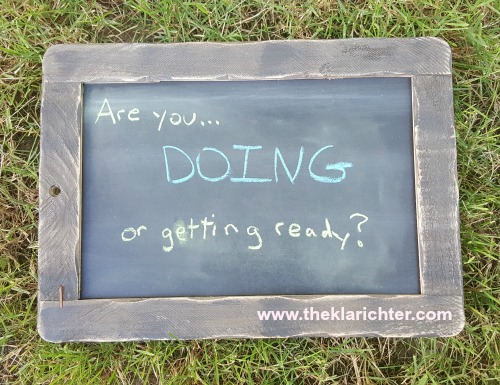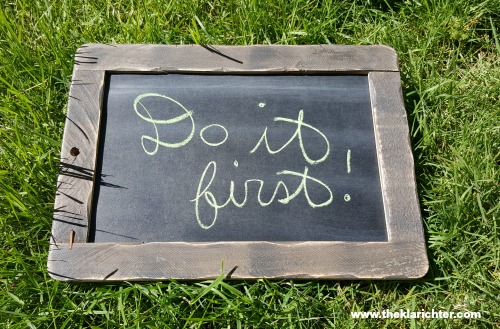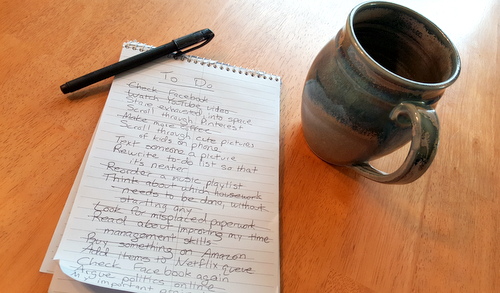It’s so easy to squander time we’ve lovingly set aside for work or play, into getting ready for work or play. Which is not the same thing at all, and I know because when it’s happened to me I felt crappy afterward. Like I’d squandered something precious, because I had.
Perhaps it goes like this: You have an hour to get something done that really means a lot to you. You start gathering your supplies, get yourself a cup of coffee to have at hand, clear some clutter away from your work area, look up some instructions you need on the internet, and maybe spend 15 minutes on Facebook in the process (oops).
Suddenly, you’ve used up 40 of those 60 minutes and feel like you haven’t gotten anything actually done. Perhaps you then leverage those 20 remaining minutes to get started (finally) on your intended task but feel sad that you didn’t get to sink into the full hour of time you’d hoped for. Perhaps you give up and go back to Facebook, start re-organizing one of the closets that tripped you up, or yield up those 20 minutes to the laundry that’s waiting for folding.
That’s a lot of getting ready, and little to no work.
This time-waste dynamic can be a form of avoidance if we are reluctant to engage in the task we claim we’re going to do. However, it can also simply be from fuzzy boundaries between time we spend doing and time we spend getting ready to do. We haven’t thought through what we will need in order to carry out out intentions, so nothing is at hand. Time + energy dissipate as we traipse about gathering and regathering and noticing another thing we need to work.
In my Tiny Pockets of Time workbook, I spend an entire section discussing how to set the stage for easy entry for yourself. One key aspect of easy entry is getting everything you will need for your pocket of time prepared ahead of time. When your work or play time starts, all that you need is at hand. You can start right away.
At its essence, dividing up the getting ready from the doing itself means distinguishing the core thing that you want to accomplish from the preparation tasks that are vital only because they clear the way to that essential task. You can start instead of prepare to start.
This distinction is especially critical if you are a busy parent because uninterrupted large chunks of time are particularly hard to come by. Best to save those large time chunks for the creative, flow-state Doing or whatever you’ve called out as most important for which only your full presence will do. Then, you can work to fit the preparations for that time into smaller or lower-quality time windows that are hopefully more prevalent.
Getting ready is necessary + important. But if you want to be effective, you can’t let it get in the way of the Doing itself, or masquerade as the Doing itself.
When you do sit down at the computer or the journal or the zabuton or the canvas or whatever the tools of your work or play might be… you can jump straight into Doing. No more getting ready to do.
And if jumping straight into truly Doing brings up intense feelings of resistance? Then you can start working to figure out what’s actually getting in your way, instead of using getting ready as a way to hide or self-soothe.
And if, preparations having been lovingly pre-handled by your past self, you find that you really can usually dive straight into Doing? Then you’re giving yourself the gift of using your time + energy with your whole heart and bringing your dreams into the world.
Is there somewhere in your life that needs more Doing and less getting ready?






